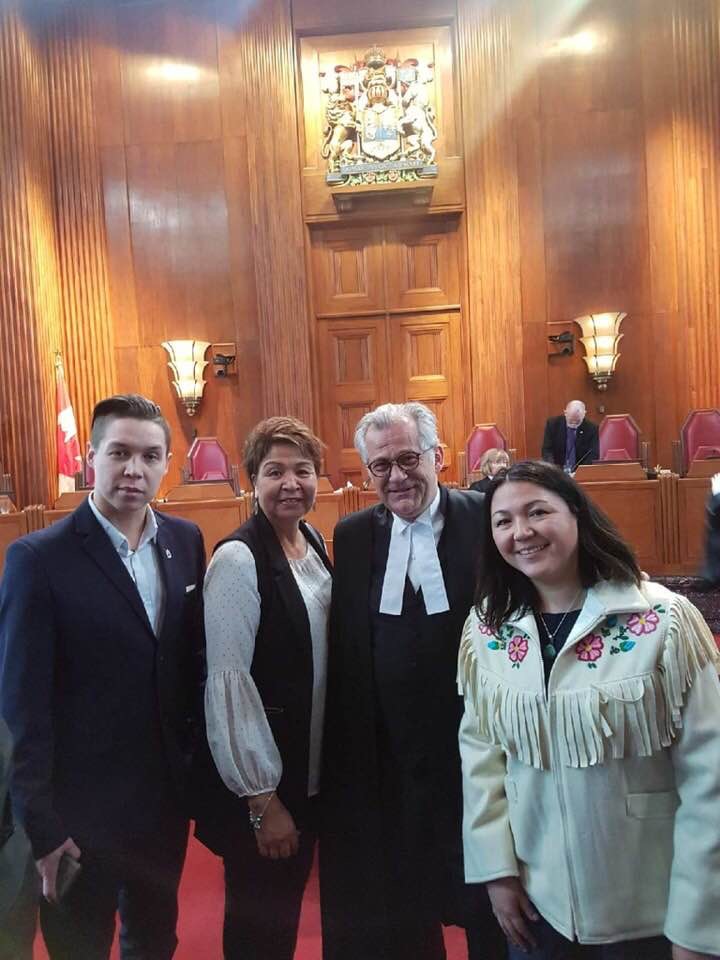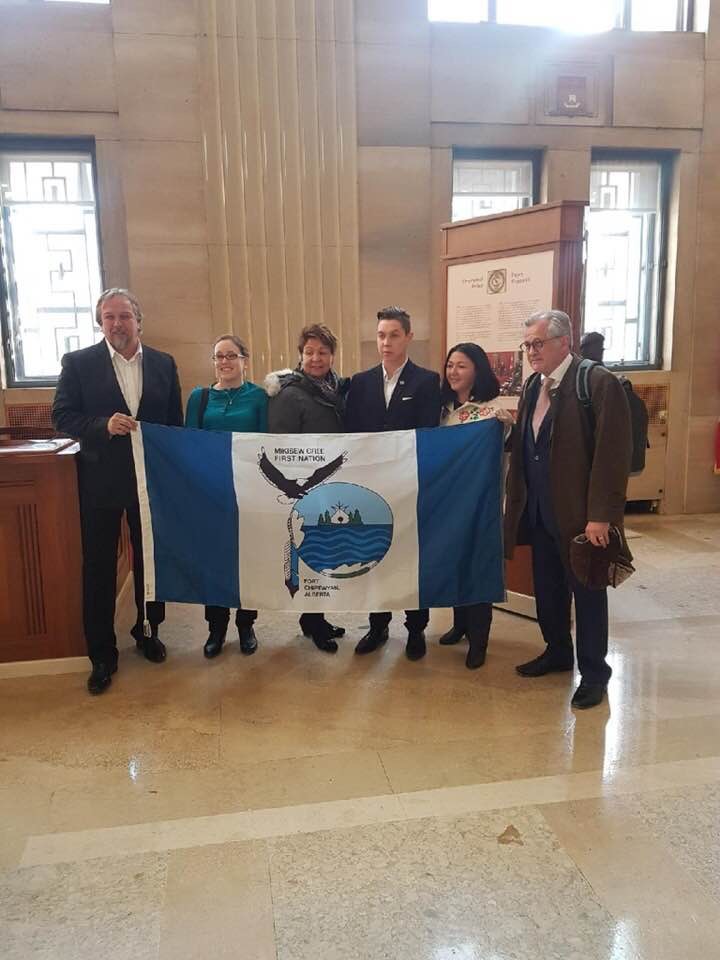
Councillor Calvin Waquan, Councillor Sally Whiteknife, Robert Janes, Melody Lepine at the Court.
Today, JFK’s Robert Janes, Karey Brooks, Estella White and Rose Singh are at the Supreme Court of Canada to argue Mikisew Cree First Nation’s challenge to the decision of the Federal Court of Appeal that First Nations are not owed a duty to consult when the Crown develops legislation.
Mikisew is located in northeastern Alberta. The First Nation is a signatory to Treaty No. 8 and has constitutionally protected treaty rights, which are inherently related to the environment in their lands. In 2012, the previous federal government introduced and passed two lengthy omnibus budget bills (Bills C-38 and C-45), which dramatically changed key federal environmental laws including the Canadian Environmental Assessment Act, the Fisheries Act, the Species at Risk Act and the Navigable Waters Protection Act. These included changes to the scope, depth and frequency of federal environmental assessments and protections in Mikisew’s territory and throughout Canada.
These actions shocked diverse segments of Canadians and helped galvanize the Idle No More movement. Concerned with the erosion of important protections for the rights of indigenous peoples across Canada, the Mikisew Cree First Nation brought a legal challenge to the previous government’s actions for failing to consult on these changes.
The Federal Court agreed with the Mikisew Cree First Nation that governments have a legally binding duty to consult First Nations when developing legislation that may impact the rights and lives of First Nations. This set a precedent of value to all First Nations peoples and put Parliament and provincial legislative assemblies on notice that First Nations’ voices must be heard whenever laws affecting their rights are developed.
The Federal Court of Appeal overturned the lower court decision late in 2016. Today the Supreme Court of Canada will hear Mikisew’s appeal of the Federal Court of Appeal’s decision.
Chief Archie Waquan stated: “Law making is the most important form of Crown decision making. It is corrosive to the process of Reconciliation for the government to say that it does not need to consult with First Nations on legislation that may adversely affect our Treaty Rights. It is our hope that the Supreme Court of Canada will confirm that the federal government and all other governments in Canada must consult with First Nations on legislation that may adversely affect our rights. Ultimately, this will benefit all Canadians.”
In the Media:
CBC: Supreme Court case could lead to First Nations role in law-making
CTV: Supreme Court case could lead to First Nations role in law-making

Carl Braun, Jenny Gerbrandt, Councillor Sally Whiteknife, Councillor Calvin Waquan, Melody Lepine and Robert Janes

The JFK Team: Estella White, Rose Singh, Robert Janes and Karey Brooks
